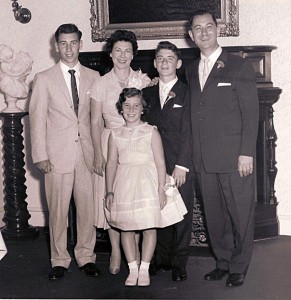I could see her crying at her keyboard as she tried to shut out the laughter of Dad and Stepmom outside her closed bedroom door. She hates them for being happy. She hates herself for hating them. She’s so angry and resentful. So frustrated and confused. But mostly she’s a sad little girl missing her mom, dead four years. Through tear-blurred eyes she searches cyberspace, desperate for connection, hoping for help yet convinced it’s hopeless because the only way to ever make things right again is to bring back Mom.
How do you counsel a child who can’t have the only thing she says will make her whole again? Here’s what I told her:
What do you do when you want something that you can not have? You have options, you know. Do you…
a) Keep longing for the impossible?b) Feel sorry for yourself and build a wall to keep out everyone who tries to help you?c) Make your peace with the new reality while still holding your mom’s memory in your heart?d) Open your mind and heart to the next chapter of your life and allow yourself to move forward?
When one partner in a loving marriage dies, it can, after a while, be a wonderful tribute to that marriage for the surviving partner to marry again. But if one partner in an unhealthy marriage dies, it is less likely for the other to remarry.You seem to think it’s your job to stand up for your mother’s memory and to be unwelcoming to your stepmom even though you say she is nice to you. I wonder what your mom would say about it. What if she could whisper to you, “Sweetie, it’s a good thing that your dad has found a wonderful woman to share his life with again. I am truly happy for him. Please try to be happy for him. And please, open your heart to this good woman. She wants to be your friend. Let her in. That will make you happier and stronger as you grow up. And when you are happy, I am happy.”
Every time we reach out to someone in friendship or love, we risk that “something might happen” and the relationship will be damaged or be lost. That’s the nature of life. We are human. Our feelings change and circumstances change. And even if feelings and circumstances remain constant, we don’t live forever. Not any of us. It’s a hard thing to accept, but we have to accept it because that’s the way it is… for everyone.
Your relationship with your mom ended in this life. Since her death you have created a new relationship with her. She is always in your heart, loving you as much as you love her. That’s an everlasting gift and nothing will change that. Another unopened gift is a dad and stepmom who are so ready and eager to love you. They’re waiting for you. When we hold ourselves back from getting close to others because we are afraid of what “might happen” someday, we shut ourselves off from the most important thing in life… love.
Is it time to open your door?














